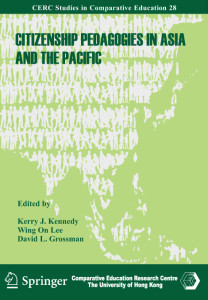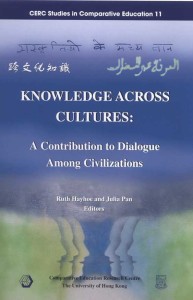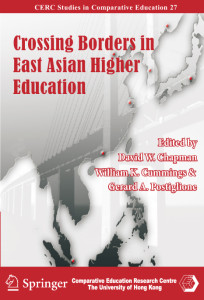Description
How are students in Asia and the Pacific taught to be effective citizens? Following two successful volumes previously published in this series, Citizenship Education in Asia and the Pacific: Concepts and Issues and Citizenship Curriculum in Asia and the Pacific, this volume focuses on citizenship pedagogies that are promoted by governments in the region, advocated by scholars, and adapted in the schools and classrooms where citizenship education takes place every day. Thirteen case studies from diverse societies in Asia and the Pacific highlight the ways in which teachers and students think about, experience or plan for citizenship teaching and learning. Different methods – vignettes, student surveys, case studies and literature reviews – are used to portray these experiences, from both macro- and micro-analytic perspectives. The wide array of case studies provides rich information and insights into the realities and possibilities of pedagogies for citizenship across the region.
What we discover from this volume is as diverse and complex as the region itself. Conservative teacher-dominated pedagogies are common in many places, but more progressive pedagogies can also be found. In some places teachers struggle to implement new methods, while in others, students seem to be more radical than their teachers in seeking more engaging pedagogies. Many cases highlight also the pressures of examination cultures that influence teachers’ choices of and students’ preferences for particular pedagogical approaches. From a comparative perspective, the volume shows how pedagogical approaches from other contexts are interpreted locally, and how government directives are adapted in classrooms. It describes how integrated and hybrid pedagogical approaches evolve when teachers in the region struggle to respond to national, global and person-oriented approaches to citizenship education. As curriculum gate-keepers, some teachers in these case studies seek an appropriate instructional space by judiciously choosing pedagogies to suit their own conceptions of citizenship education. For other teachers there are more limited choices, because of strong societal mandates, perceived community expectations, or simply because of a lack of skills to teach in any other way.
Collectively these chapters constitute a remarkable study of the delivery of citizenship education across the region and of the variety of pedagogies that influence the lives of teachers and students in this context.
Kerry J. KENNEDY is Chair Professor of Curriculum Studies at the Hong Kong Institute of Education, where he is Dean of the Faculty of Education Studies and Associate Vice-President (Quality Assurance). He is also a Senior Research Fellow in the Centre for Governance and Citizenship. Before moving to Hong Kong, he was Pro Vice-Chancellor (Academic) at the University of Canberra in Australia.
Wing On LEE is currently Vice-President (Academic) and Deputy to the President at the Hong Kong Institute of Education, where he is also Chair Professor of Comparative Education and Co-Director of the Centre for Governance and Citizenship. He was formerly Director (International) in the College of Humanities and Social Sciences at the University of Sydney in Australia, where he was also Professor of Education. He is a member of Hong Kong’s Central Policy Unit, Education Commission and Curriculum Development Council.
David L. GROSSMAN is currently Dean of the Division of Education at Chaminade University in Hawaii and an Adjunct Senior Fellow of the Education Program of the East-West Center. Prior to that, he was Professor and Dean of the Faculty of Languages, Arts and Sciences at the Hong Kong Institute of Education and Co-Head of the Centre for Citizenship Education.

















